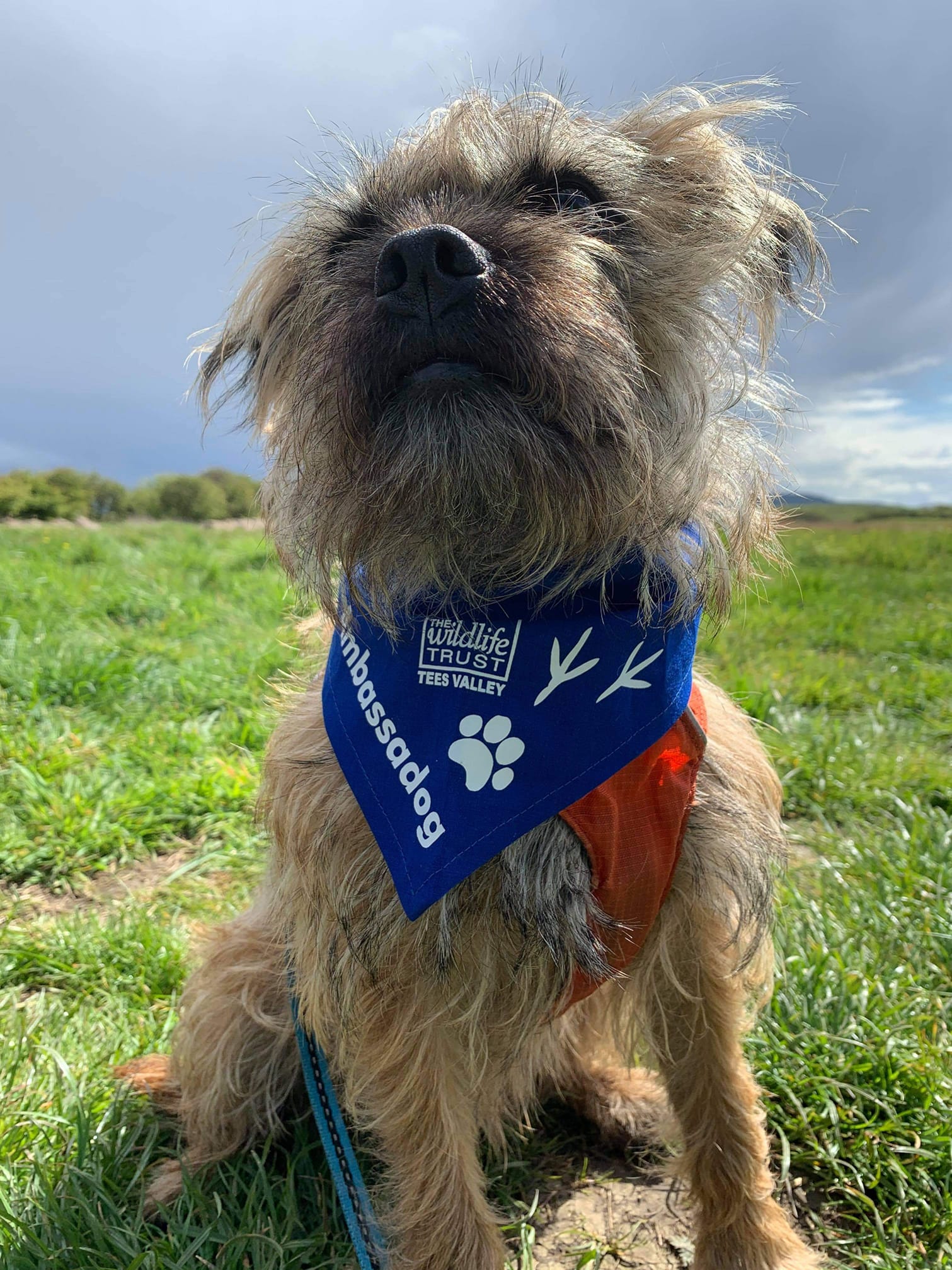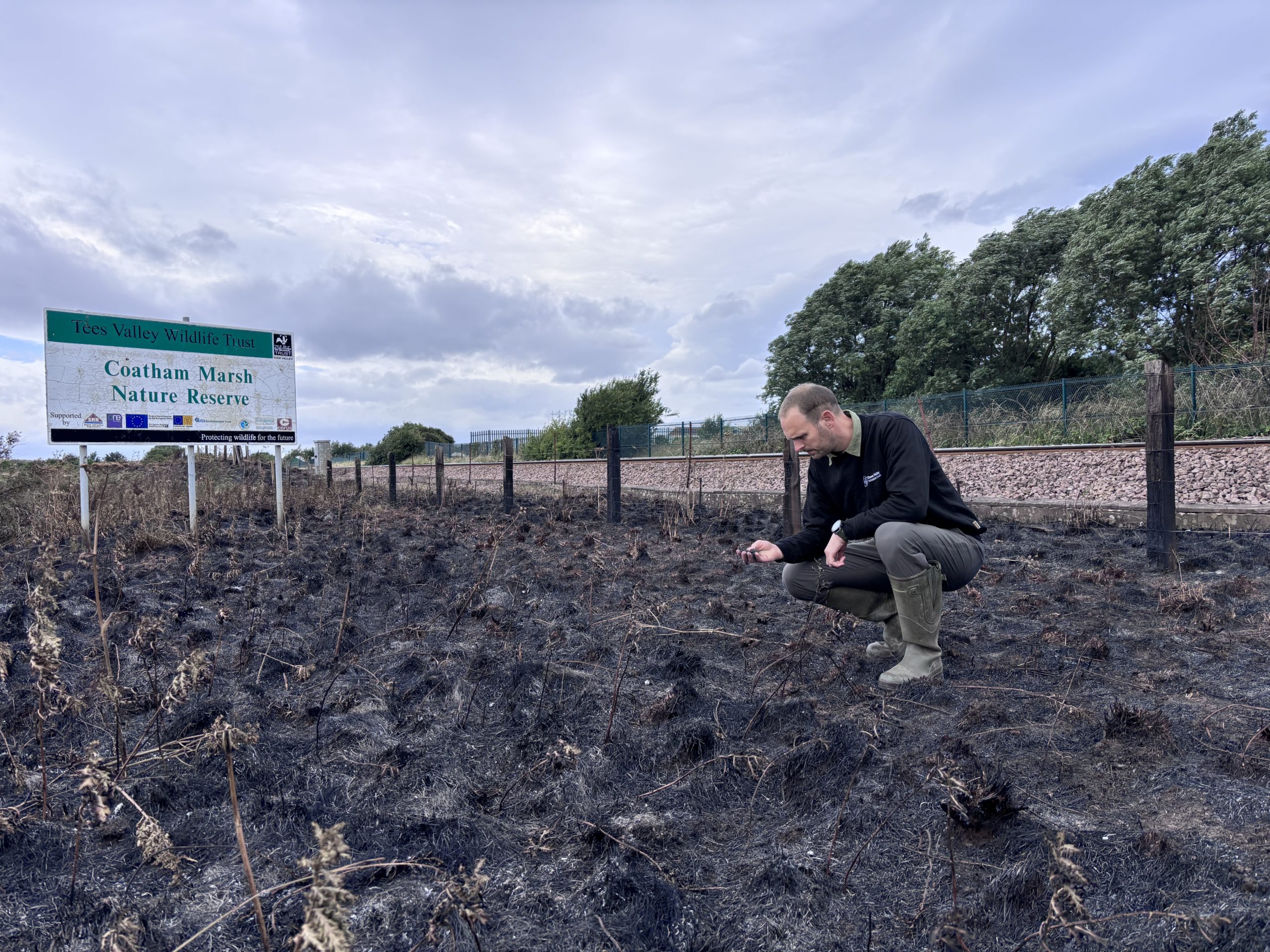Tee Valley Wildlife Trust ask the public to keep dogs on leads to protect nature
The Wildlife Trust are urging dog owners to keep their pets on short leads now that birds are nesting, species are emerging from hibernation and to protect grazing livestock.
Experts say dogs off leads are one of the biggest causes of wildlife disturbance – this is particularly problematic when many species are breeding and vulnerable either on or near the ground.
Ground-nesting birds such as curlew, corn bunting and skylark, are particularly at risk. Research shows that 66% of ground-nesting birds are in decline in the UK, compared to 31% of other species.
Dogs can also be a threat to sheep, cows and other grazing livestock, with regular problems reported on land owned by the Wildlife Trusts. Dog waste is dangerous for wildlife too, as it can carry diseases, scare away animals and fertilise soils, affecting the natural balance of fragile habitats.
Dog owners can help wildlife if they:
- Keep dogs on short leads on nature reserves and the wider countryside
- Clean up after animals and dispose of dog waste in bins or at home
- Avoid using nature reserves if walking large groups of dogs
Many of The Wildlife Trusts’ 2,400 nature reserves welcome responsible dog walkers but instances of loose dogs disturbing wildlife and livestock have led the charities to issue a plea ahead of spring.
Wild places with particularly sensitive habitats or species may be closed to dogs. Some beaches have cordoned-off areas to protect rare birds that nest on pebbles or in the sand.
Steve Ashton, People and Wildlife Manager, Tees Valley Wildlife Trust says:
“Members of public have reported to us several issues linked to dog walking companies taking up to 6 dogs for walk sometimes off the lead on out natures reserves. Reserves like Bowesfield, Portrack and Coatham Marshes are very popular with local people and quite often the walks here can be spoiled by dog mess on paths and plastic bags full of waste hanging on trees. When we have school visits to these reserves this can become problematic with a chance of children catching diseases as well as the unpleasantness of standing in the mess. They are also home to a number of ground nesting birds.”
Joan Edwards, director of policy for The Wildlife Trusts, says:
“It’s great that so many people benefit from enjoying beautiful natural areas while out walking their dogs, but we urge responsibility. Wildlife is suffering huge declines and dogs in wild places can cause problems, especially from February through to the end of summer when many species are breeding. I’m a dog owner but never walk her without a lead during nesting season. It’s not only the impact on ground-nesting birds, but other wildlife including amphibians and mammals can be affected, as well as grazing livestock.”
Jenna Kiddie, head of canine behaviour at Dogs Trust, says:
“A countryside dog walk is understandably popular, especially as we move into the warmer months. But owners have a responsibility to keep their dog under control, including around livestock and wildlife, to ensure they do not worry other animals or stray onto neighbouring land for everyone’s safety and wellbeing.
“This can be managed by ensuring dogs are kept on a short lead, and close to their owners, whenever livestock are nearby, within seeing, hearing or smelling distance or whenever their presence is likely to be expected. It is important to remember that chasing is normal dog behaviour, and that any dog is capable of chasing, irrelevant of breed, type, age or size.”
The impacts of dogs off leads in wild places include trampling nests and scaring adults away from their young. Vulnerable chicks can perish if left alone for too long. Disturbances can also affect feeding and foraging behaviour – wildlife is less likely to breed and feed in areas where dogs are encountered.
The law states you must keep your dog on a lead no longer than two metres between 1st March and 31st July when on any open access land to protect ground-nesting birds.
The Countryside Code outlines that dogs must be controlled to avoid disturbing farm animals or wildlife. Farmers are, by law, entitled to destroy a dog that injures or worries their animals.
Jenna Kiddie, Head of Canine Behaviour at Dogs Trust, continues:
“Training has a crucial role to play and at Dog School we teach owners how to ensure their dog walks nicely on their lead around distractions – such as the sights, smells and sounds of other animals. We would encourage dog owners to visit our Dog School website for more information on training techniques, or to book onto training classes.
“For dog owners living in rural areas, we emphasise the importance of habituating young puppies to livestock. This should be done gradually and considerately so the dog and livestock alike are able to feel positively and safe in close proximity to each other, again with the dog always on a lead and under control.
“As a responsible dog owner, you can also ensure that everyone is able to enjoy countryside walks and protect wildlife by ensuring you pick up after your dog and dispose of dog waste appropriately.”
Responsible dog owners who keep their dogs on leads during nature’s busy season will also be helping wildlife by:
- Lessening the negative impacts of dog poo and urine.
- Preventing dogs jumping in ponds, which can disturb aquatic wildlife. Insecticides found in dog flea treatments can pollute waterways.
- Reducing risks to other animals, including farm livestock.




